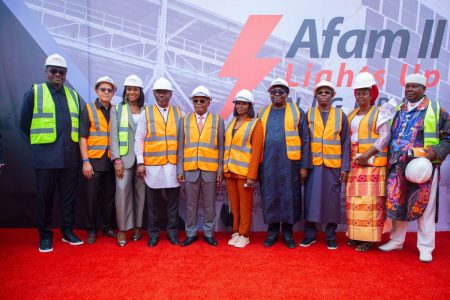…Want creation of presidential task force on steel development

Oscarline Onwuemenyi
04 July 2017, Sweetcrude, Abuja – Stakeholders in the nation’s steel sector have decried the non-inclusion of a comprehensive National Steel Development programme in the Federal Government’s Economic Recovery and Growth Plan (EGRP).
The stakeholders include the African Iron and Steel Association (AISA), Nigerian Metallurgical Society, the Metallurgical, Mining and Minerals Division of the Nigerian Society of Engineers (NSE), the Industrial Global Union, the Iron and Steel Senior Staff Association of Nigeria (ISSSAN), as well as other groups representing host communities and youths of Okene and Ajaokuta in Kogi state.
Speaking specifically on this issue, the Vice president of the Industrial Global Union (IGU), which represents over a hundred industrial unions globally, Comrade Isa Aremu, noted that there is no way the country would achieve industrial and economic growth in the absence of a functional steel sector.
He said the Federal government’s effort to create jobs for the teeming youths in the country would amount to nought if no attention is paid towards the revival of the nation’s comatose steel sector, and specifically, the resuscitation of the moribund Ajaokuta Steel Company Limited (ASCL).
According to him, the neglect of ASCL has cost the country millions of job opportunities in both the upstream and downstream sectors of the steel industry, including in associated industries.
He said, “The best and most effective way to create jobs and grow the economy is through industrialisation, and you cannot have industrialisation without the strategic development of the steel sector.
“A study of the most industrialised nations in the world will quickly reveal that those countries consciously and rigorously developed their steel sectors, from whence other industries take root or are bolstered.
“Even countries that do not possess the raw materials for developing steel have invested immensely in development of their steel sector, because they understand the importance of iron steel for their economic growth. In short, you can say that steel is the bedrock of any economic and industrial growth in any nation.”
Aremu further noted that by developing the steel industry, Nigeria could save trillions of naira in foreign exchange, pointing out that on the average, the country expends between N2-N3 trillion on the importation of steel products.
“Statistics from the National Bureau of Statistics show that over the past 10 years alone, Nigeria has spent over N23 trillion in importation of steel. That is an enormous amount of money that would have gone into development of other social programes.”
Also speaking on the importance of the steel sector to economic development, the Chairman of the Metallurgical, Mining and Materials Division of the Nigerian Society of Engineers, Engr. David Esezobor charged the government to constitute a Presidential Task Force on Steel Development for the rehabilitation of the ailing sector.
He said, “The Federal government should establish an independent steel development commission or authority under the auspices of the Presidency for the overall sector sector development and growth.
“In a simplified form, a Special Presidential Taskforce for Steel Development, just like the former Presidential task force on power reform, should as a matter of urgency be constituted.
“This body is to put in place a concrete and verified business plan at minimal cost for the completion of the three uncompleted primary plants in Ajaokuta Steel project, to be in operation to produce liquid steel.”
He added, “Owing to the strategic nature of steel to the nation’s economy as the bedrock for actualisation of any agenda (economic diversification, industrialisation, jobs and wealth creation, the Federal government should pursue a clear vision as well as clear policies and roadmaps for the development of the iron and steel sector.
“The government should also remove all obstacles mitigating growth and development in the iron and steel sector such as provision of external infrastructure, and development of a legal or institutional framework that will provide a legal basis for the effective growth of metallurgical activities in the country.”



